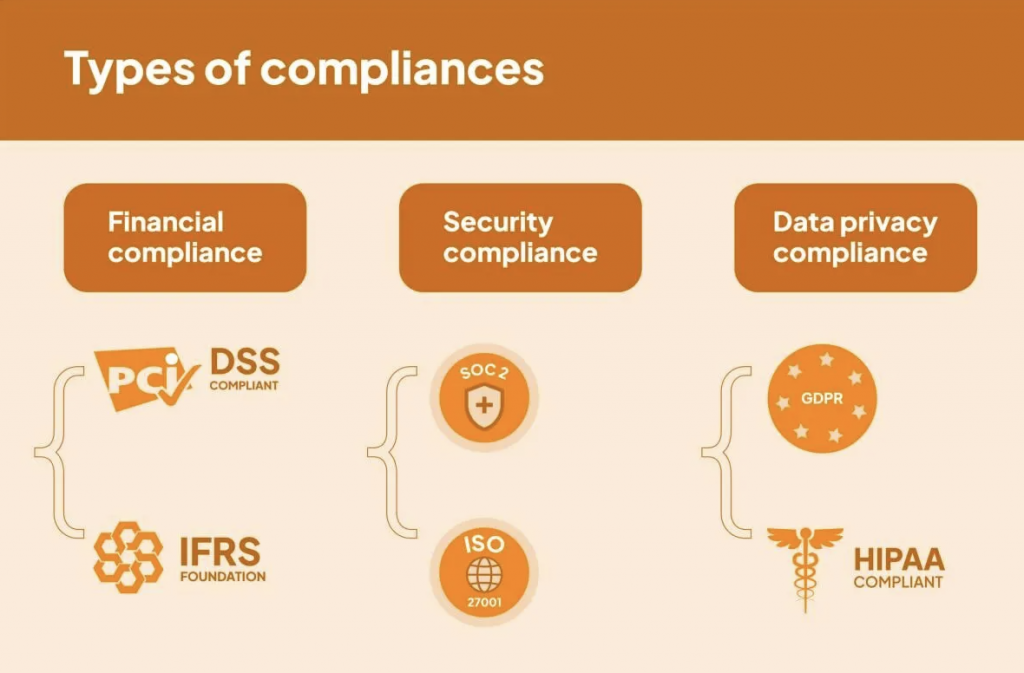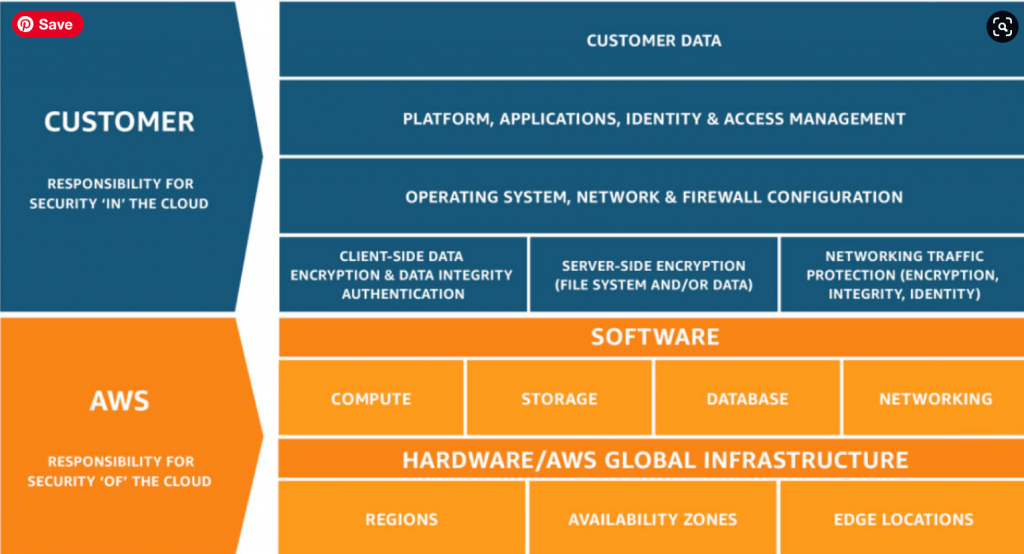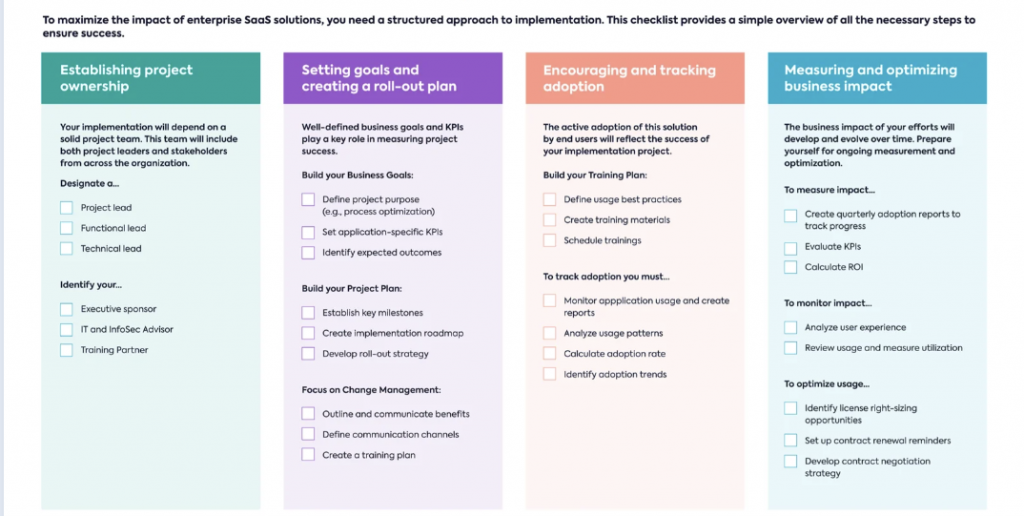Software as a Service (SaaS) is essential in today’s fast-changing digital landscape. It helps businesses work better, collaborate more, and create new things. It is like a toolbox for modern business, promising to make things bigger, more flexible, and cheaper. But as companies use these services more, following its rules has become critical.
In this article, we dive into the world of SaaS compliance. We’ll explain why it’s important, discuss the complex parts, and share innovative ways to remain compliant. Whether you make or use SaaS, this guide will help you understand the rules and navigate the tricky path of these companies.

What is SaaS Compliance?
This type of compliance covers guidelines, rules, and needs that SaaS providers must follow. Even though companies have to follow different directions, like how they count money, this article talks mainly about the rules for keeping customer data safe when it comes to the software as a service industry.
It covers a wide range of rules. From security frameworks like SOC 2 and ISO 27001 to data protection and privacy regulations like GDPR and CCPA to industry-specific compliance standards such as HIPAA for healthcare and PCI DSS for payment processing, the landscape is teeming with intricate compliance requirements that demand meticulous attention.
Types of SaaS Compliance
Now that we have a general understanding of what it is, let’s look at some of the main types of SaaS compliance and the most important ones.

Types of SaaS Compliance
Source: sprinto.com
SOC 2 Compliance
SOC 2 compliance (Service Organization Control 2) is a cybersecurity standard by the American Institute of Certified Public Accountants (AICPA). It’s great for SaaS businesses that deal with lots of personal information.
SOC 2 looks at five Trust Principles when regulating compliance such as:
- Security
- Availability
- Processing Integrity
- Confidentiality
- Privacy
PCI DSS Certification
PCI DSS stands for Payment Card Industry Data Security Standard. The credit card industry creates a set of rules to ensure payment information stays secure. PCI DSS is essential for handling credit card data, like SaaS businesses dealing with payments, such as monthly subscriptions. It sets the guidelines to keep sensitive information locked down, preventing data breaches and fraud. Following PCI DSS means you’re serious about protecting payment data and maintaining trust with your target audience.
ISO 27001 Certification
ISO/IEC 27001 is a worldwide respected standard that boosts information safety in any organization, no matter how big or where it is. Created by the International Organization for Standardization (ISO) and the International Electrotechnical Commission (IEC), it lays out rules and top practices for setting up, running, and making an information security system (ISMS).
Its goal is to guard information so it stays secret, exact, and reachable. While ISO 27001 usually isn’t a legal must-do, many times, partners or specific industries (like finance or healthcare) might expect it.
ASC 606
ASC, short for Accounting Standards Codification, recently introduced its latest edition, “606”. The goal is to streamline how businesses handle their earnings. This framework establishes consistent rules for recording financial transactions across industries, ensuring uniformity and fairness.
The main aim of ASC 606 is to standardize accounting practices, eliminating variations in revenue recognition. This is achieved through a five-step process:
- Identifying customer contracts.
- Defining performance obligations in those contracts.
- Determining transaction prices.
- Allocating the transaction price to obligations.
- Recognizing revenue after obligations are met.
Why is SaaS Compliance Important?
In the world of business and technology, SaaS compliance holds significant importance. It’s not just a minor detail. It’s a critical aspect that brings several benefits, such as giving extra security and bringing more business collaborations. Here’s a closer look at why it deserves your attention:

Importance of SaaS Compliance
Source: amazon.com
Ensure Data Security
SaaS compliance is all about keeping your sensitive data safe and sound. When companies follow the standards, they take strong measures to protect your private information. It’s like a safety net for your data.
Expand Across Borders
The digital landscape knows no bounds. SaaS companies can offer their services to customers worldwide. However, different places have different rules. That’s where SaaS compliance steps in. For instance, Europe’s General Data Protection Regulation (GDPR) demands that companies handle personal data carefully. By adhering to such regulations, providers gain access to global markets while building trust with consumers.
Seize Lucrative Opportunities
When big businesses look for solutions, compliance often becomes a deal-breaker. They want to work with providers who take it seriously. This opens doors to more considerable business opportunities. By demonstrating your commitment to compliance, you increase your chances of being chosen by more significant players in the market.
Boosts Funding Prospects
Need financial backing for your SaaS venture? Investors are all about security. They want to know that their investment is in safe hands. It serves as evidence that your business is diligent about security practices. This confidence can significantly enhance your eligibility for funding rounds.
Escape Legal Problems
Ignoring compliance is a risky game. This can lead to hefty fines, legal battles, and a damaged reputation. However, adhering to SaaS compliance demonstrates a robust security posture and focus on protecting data. This proactive approach can help you avoid legal troubles, ensuring a smoother and trouble-free journey for your SaaS business.
Benefits of SaaS Compliance
In our interconnected landscape, businesses can’t afford to overlook the importance of playing by the rules. The rise of SaaS solutions has made regulatory compliance more accessible than ever. It serves as a shield, ensuring your business meets all the necessary regulations without requiring you to delve into the nitty-gritty legal aspects. Here’s why it’s a strategic move that pays off in various ways:
Building Customer Trust
Regulatory compliance isn’t a legal checkbox. It’s a way of showcasing your commitment to doing things right. When customers see that you’re following guidelines to improve security and privacy, it builds trust. This trust translates into a loyal customer base, boosting your business’s stability.
Fortifying Data Protection
Compliance mandates specific security measures, acting as a security guard for your data. By adhering to these protocols, you’re making sure your sensitive information is shielded from potential threats. It’s like adding a security system for your business’s digital assets.
Long-Term Strategic Investment
Embracing SaaS compliance is to avoid problems now and invest in your business’s future. By steering clear of fines and disruptions, you’re safeguarding the sustainability of your operations.
Tips for Implementing SaaS Solutions
Prioritizing compliance in your organization is a must. Using these solutions might seem complex, but it doesn’t have to be. Start by working together to make a compliance plan. Include legal, security, and IT teams to cover all risks. Keep track of any changes in the regulations to stay compliant. Make clear rules for user access, saving data, and working with outside vendors. Train your employees to follow the plan and identify potential risks.

Implementing SaaS Solutions
Source: Leanix.net
Here are the key steps you need to take so you can be sure your SaaS solutions are top-level:
- Prioritize compliance for success
- Work together for safety
- Stay Updated on all regulations
- Set clear rules and policies for employees
- Train your team
Conclusion
SaaS compliance reassures customers and opens doors for growth. ISO/IEC 27001 fortifies information security across industries, while ASC 606 offers a consistent approach to revenue recognition, bringing transparency and fairness.
Businesses realize that staying compliant isn’t only about following rules in this interconnected realm. It’s about establishing a foundation of trust, security, and clarity. Embracing these principles isn’t only a way to escape legal issues. This strategic decision resonates with partners, customers, and industries.
As we navigate this complex landscape, prioritizing compliance and standards isn’t a choice. It’s necessary to propel businesses toward sustainable growth, fortify their reputation, and ensure a resilient future.






















Leave a comment!